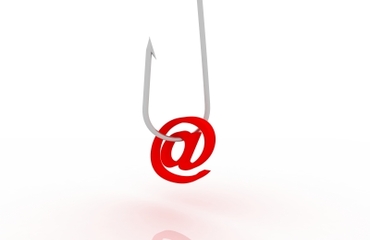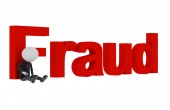Protect yourself from fake HMRC
Article Author: Harsh Shah Posted on: September 09, 2014 (Full Author Bio in the box on the right side) 3043 views
3043 views

Most of the communications that you receive from HMRC come in form of electronic communication and transactions, as they are a key part of HMRC. While there are advantages of using this mode of communication and transaction, there can be some serious risks attached with it, too.
HMRC understands this, and is committed to your security and will do its best to protect you from fraudsters and scammers. However, it is not that easy. In order to avoid yourself of becoming a victim of online fraud, you will have to take certain security measures.
Here are some tips to protect yourself:
Create a strong password – This is your strongest and most powerful defense against cyber attacks. They should be:
- At least eight characters long
- Should not contain your user name, real name, or your company name
- Should not contain a complete word, e.g. beautiful or strong or competitive etc
- Should be significantly different from any of your previous passwords
- Should contain each one i.e. upper case letter, lower case letter, number and symbols found on your keyboard
- Create an acronym from an easy-to-remember piece of information. For example, pick a phrase that is meaningful to you, such as My son’s birthday is 12 December, 2004. Using that phrase as your guide, you might use Msbi12/Dec,4 for your password.
- Substitute numbers, symbols, and misspellings for letters or words in an easy-to-remember phrase. For example, My son’s birthday is 12 December, 2004 could become Mi$un’s Brthd8iz 12124 (it’s OK to use spaces in your password).
- Relate your password to a favorite hobby or sport. For example, I love to play badminton could become [email protected] ()n
If you feel you must write down your password in order to remember it, make sure you don’t label it as your password, and keep it in a safe place.
Unsolicited emails
Be suspicious of unsolicited emails, even if they look like they’re from a trusted source. HMRC will never send notifications of a tax rebate by email, or ask you to disclose personal or payment information by email.
HMRC will never send notifications of a tax rebate, or ask you to disclose personal or payment information by email. If you have any doubt that an email you receive from HMRC is genuine, please do not follow any links, disclose any personal details or respond to it. Please forward it to HMRC at [email protected] then delete it.
Please be aware that HMRC are unable to investigate paper copies of phishing emails/websites. In order for HMRC to take any action, you will need to forward the original phishing email to the email address provided.
There are many other ways to protect yourself apart from the ones listed above. You can read more ways to protect on HMRC online.
Latest Posts
-

Staying HMRC Compliant: VAT Returns Have Chan...
by Amanda Swales on January 29, 2020 Accounting & Tax -

Self Assessment Tax Return 101 - Filling In T...
by Amanda Swales on January 15, 2020 Accounting & Tax -

-



 Choosing the right VAT route
Choosing the right VAT route  The top 6 most common mistakes made on Self Assessment Tax Returns
The top 6 most common mistakes made on Self Assessment Tax Returns  Self Assessment Tax Return 101 - Filling In The Form Fast
Self Assessment Tax Return 101 - Filling In The Form Fast  Beginners guide to business tax deduction
Beginners guide to business tax deduction  Cloud Accountancy for Contractors: Do you find it mystifying?
Cloud Accountancy for Contractors: Do you find it mystifying?  5 reasons to update your self-assessment throughout the year
5 reasons to update your self-assessment throughout the year  Top Tax Changes That Contractors Need To Know
Top Tax Changes That Contractors Need To Know  Review bid gets crucial boost from influential and campaigning politician
Review bid gets crucial boost from influential and campaigning politician  3 Tips For Handling The Paper Tax Return Submission
3 Tips For Handling The Paper Tax Return Submission  Top 3 Reasons Why Freelancers and Contractors should hire an Accountant
Top 3 Reasons Why Freelancers and Contractors should hire an Accountant  Should an IT contractor become VAT registered
Should an IT contractor become VAT registered  Self Assessment Payments on Account
Self Assessment Payments on Account  Are you aware about the new HMRC Your 2016 Tax Report Phishing Scam?
Are you aware about the new HMRC Your 2016 Tax Report Phishing Scam?  HMRC Taskforces Targeting VAT Fraud
HMRC Taskforces Targeting VAT Fraud  What is a second payment on account and how is it calculated?
What is a second payment on account and how is it calculated?  Are You Declaring All Of Your Earnings To HMRC?
Are You Declaring All Of Your Earnings To HMRC?  Who Needs A UTR Number Anyway?
Who Needs A UTR Number Anyway?  IT Contractors - Profit extraction by dividend payment
IT Contractors - Profit extraction by dividend payment  Scotland Vs England And Wales: What Are The Differences In Tax?
Scotland Vs England And Wales: What Are The Differences In Tax?  Deadline day penalties: a subjective approach
Deadline day penalties: a subjective approach  PAYE Week 53 payments HMRC
PAYE Week 53 payments HMRC  Corporation Tax: Late Payment penalties and interest charges explained
Corporation Tax: Late Payment penalties and interest charges explained  Staying HMRC Compliant: VAT Returns Have Changed
Staying HMRC Compliant: VAT Returns Have Changed  A Guide To Tax Changes Impacting Landlords
A Guide To Tax Changes Impacting Landlords  How long to keep your PAYE records
How long to keep your PAYE records  The Tax Investigation Process
The Tax Investigation Process  Top Tax Tips for UK Contractors and Freelancers
Top Tax Tips for UK Contractors and Freelancers  How To Make The 2019-20 Tax Year The Time Of Tax Savings As A Sole Trader
How To Make The 2019-20 Tax Year The Time Of Tax Savings As A Sole Trader  Key tax dates coming up in July
Key tax dates coming up in July  Do I Need To Register As A Self-Employed Sole Trader?
Do I Need To Register As A Self-Employed Sole Trader? 

